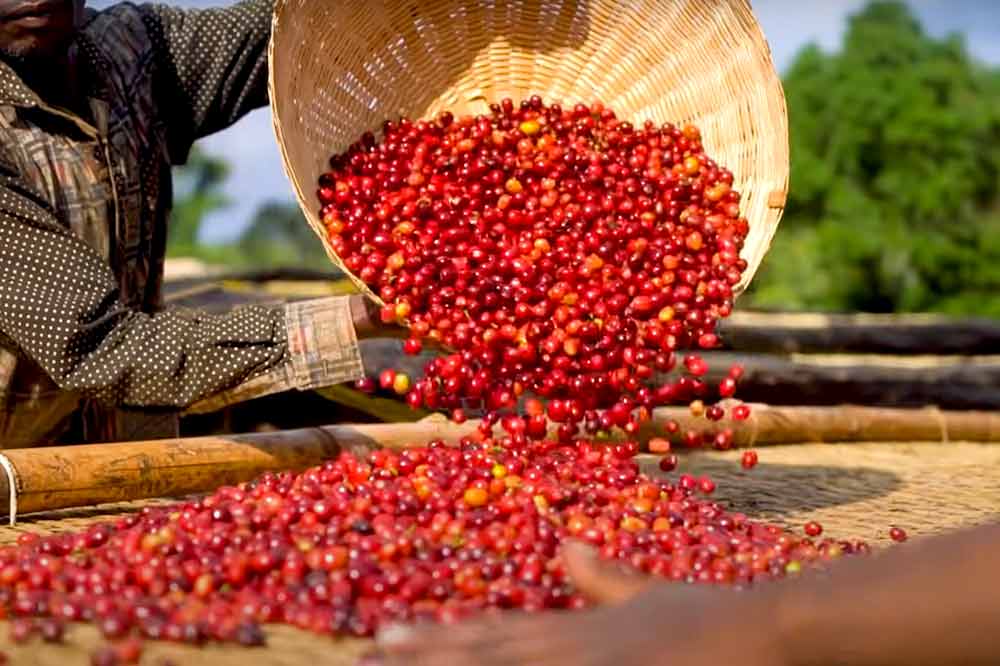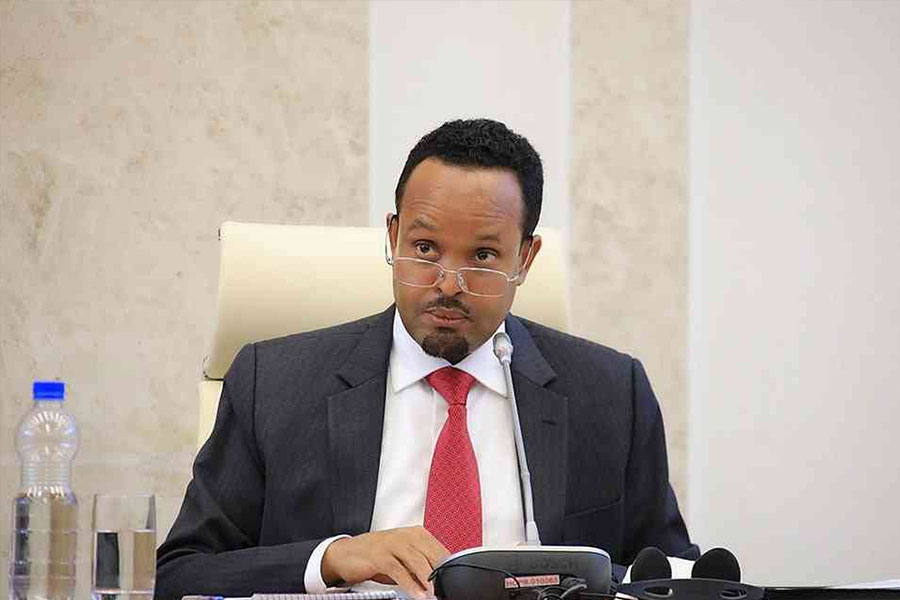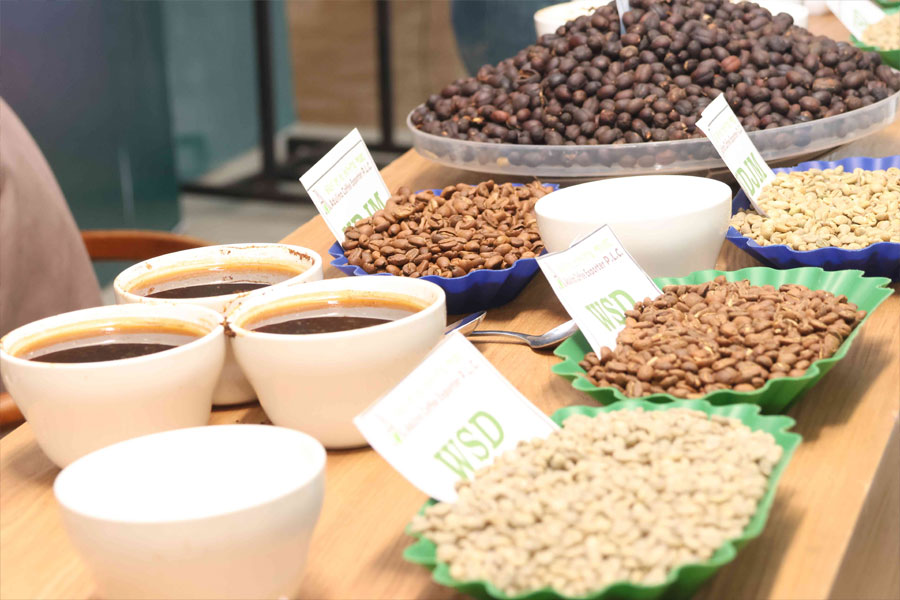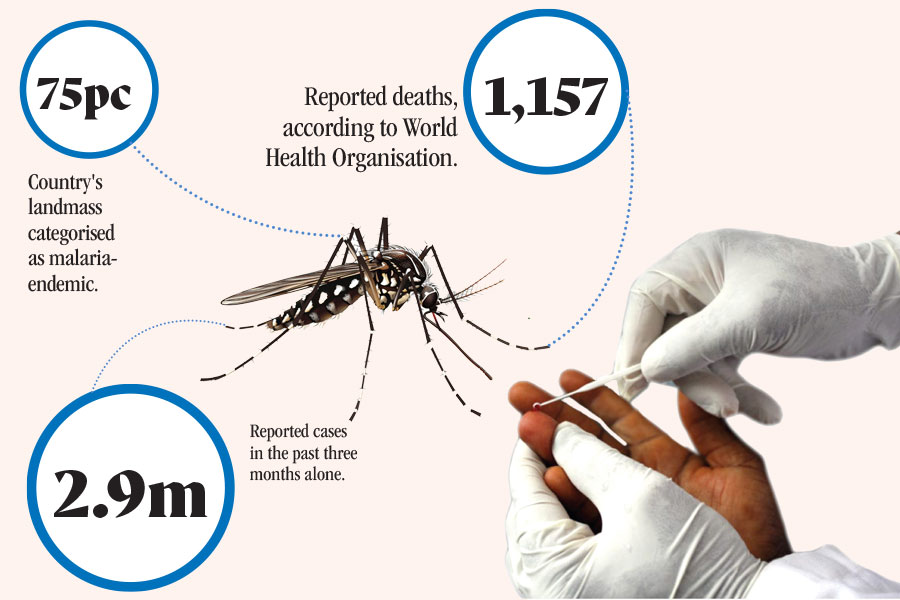
View From Arada | Nov 14,2020
International coffee prices hit a record high after 47 years last week, sending ripple effects on the Ethiopian growers and exporters. Arabica coffee hit a high of 3.44 dollars per pound before cooling to 3.28 dollars, marking a marked 75.92pc increase from the previous year. These soaring prices, last witnessed when coffee reached 3.35 dollars per pound in 1977.
While hoping to benefit from the historic surge in global coffee prices, growers and exporters have expressed anxiety.
A decline of production in major coffee-exporting countries like Vietnam and Brazil has primarily caused the price hikes. Vietnam, the world's leading producer of Robusta coffee, is grappling with heavy rains that threaten to flood coffee fields and disrupt the harvest season. Vietnam reported a 20pc drop in coffee production for the 2023/24 crop year, the lowest in four years, due to drought.
Brazil, the world’s largest producer, is also facing a severe climate change that devastated the country’s coffee production. The country has experienced the driest weather in over four decades.
The Brazilian crop forecasting agency, National Supply Company (CONAB) has slashed its 2024 coffee production forecast to 54.8 million 60-kilogram-bags from its May prediction of 58.8 million bags. Rainfall in Brazil has consistently fallen below average since April, impacting coffee trees during their critical flowering stage and diminishing prospects for the 2025-26 Arabica coffee crop.
Ethiopian exporters expressed eagerness to benefit from the historic price surge. Ibrahim Hussen, a coffee grower and exporter enthused as he gears up to join the market in January when new produce becomes available. "The high demand in the market has made the trade attractive for me," he said.
Having already sold his old crop, Ibrahim enthusiastically awaits the arrival of new beans. With a 205-hectare farm yielding nine containers of export coffee, he exports up to 50 containers annually including other farms’ produce.
Not all share Ibrahim's optimism. Dejene Dadi, general manager of the Oromia Coffee Farmers’ Cooperative Union (OCFCU) cautions the price hike. "The big markets of America and Europe are not in the market to buy," he said. He argues that anxieties about the volatile market have led to a decrease in demand.
Dejene stated that massive finances are required to purchase coffee in bulk to better benefit from the global market. The union has already secured contracts from foreign buyers. "We have contracts that will enable us to sell our certified coffee for 4.5 dollars per pound, up from the previous 3.5 dollars per pound," he told Fortune.
The Ethiopian Coffee & Tea Authority (ECTA) projects coffee exports to generate over 2 billion dollars in revenue in the current fiscal year. In October 2024 alone 35,172tn of coffee was exported, earning 155.53 million dollars. This represents a 75pc increase in volume and a 66pc increase in revenue compared to the same period last year. ECTA reports that nearly 150,347tn of coffee were exported in the first four months of the fiscal year, generating 674.55 million dollars.
Tatek Girma, an export manager at Stella Plus Trading Plc, acknowledges the potential impact of the current price surge on green coffee buyers and exporters. "Buyers might be hesitant to purchase at these higher prices and prefer to wait until prices stabilize," he said. He fears that this hesitation could impact exporters and producers who may face reduced demand and market uncertainty. Tatek says volatility of coffee prices makes it challenging to predict future trends accurately.
He worries that rising prices could affect his company's profit margins. If prices continue to rise, buyers might become hesitant and this would diminish the sales volume, according to Tatek. “While demand remains strong, the uncertainty around price stability might lead buyers to wait."
Some are even planning their return to the coffee export business, sensing an opportunity. Aster Coffee Export, after a year-long hiatus due to high market volatility, is plotting its comeback. "We are carefully assessing the market and will start with 10 containers this year," stated Dawit Degu, a manager at the company.
Israel Degefa, president of Kerchanshe Trading Plc, a major coffee exporter, and a board member of the Ethiopian Coffee Association (ECA), says that the dramatic increase in price would benefit the Ethiopian coffee industry. He believes that the current price surge, driven by speculation, will eventually stabilize after the Brazilian government releases its January coffee production prediction. "If the Brazilian government predicts sufficient production for the market, it could result in price decreases,” he said, "if not, the full year's price might be similar to the record level”.
The profit margin for coffee exporters has been widening since the macroeconomic reforms implemented in July, according to Israel. However, he stated that price hikes have diminished working capitals of companies further exacerbated by the shortage of loans.
Israel states that lack of sufficient finances has severely affected exporters. "If we don't get loans, the volume of exports will decrease," he said. He revealed that exporters appealed to the central bank to influence banks to extend loans to them. But their request was to no avail, according to Israel. He says that lack of bank credits could result in defaulting on export contracts.
The National Bank of Ethiopia’s recent stability report released last month found out that credit to the export sector has declined by 1.6pc.
The price paid to farmers for fresh coffee has also risen, climbing from 60 Br to 80 Br per kg.
Mamush Esayas, a coffee farmer in Wenago District, South Ethiopia Regional State, who recently began selling his produce to exporters, is optimistic about the upcoming season. He sold washed coffee at 382.35 Br per kg last year and expects the price to double to 764.71 Br per kg this year. Last year, he earned 1.2 million Br from his 2.5-hectare farm by selling 3,400 kg of coffee.
However, he also cites insufficient demand and bureaucratic hurdles as problems facing farmers. Mamush says that an Ethiopian Commodity Exchange centre in Dilla has been closed and he is forced to travel 85 km to Hawassa to certify and sell his coffee. "It will not benefit us if we cannot export directly or meet the buyers face-to-face," he told Fortune.
Coffee prices in the domestic market have also sharply increased over the past year. For example, the price of red unwashed coffee went from 30 Br to 85 Br. Mesfin Hailemariam, from the Agricultural Bureau’s coffee & tea development department, in South Ethiopia Regional State, stated that while the price increase benefits growers and exporters, he fears that exporters may hoard coffee speculating higher prices, potentially compromising quality.
Economist Atlaw Alemu (PhD) recommends that growers and exporters sell their produce when prices are high.
PUBLISHED ON
Dec 15,2024 [ VOL
25 , NO
1285]

View From Arada | Nov 14,2020

Fortune News | Sep 13,2025

Fortune News | Jun 15,2025

Verbatim | Apr 08,2023

Agenda | Oct 13,2024

Radar | Apr 17,2021

Fortune News | Nov 09,2024

Radar | Oct 30,2021

Life Matters | Jan 07,2022

Fortune News | Nov 16,2024

Dec 22 , 2024 . By TIZITA SHEWAFERAW
Charged with transforming colossal state-owned enterprises into modern and competitiv...

Aug 18 , 2024 . By AKSAH ITALO
Although predictable Yonas Zerihun's job in the ride-hailing service is not immune to...

Jul 28 , 2024 . By TIZITA SHEWAFERAW
Unhabitual, perhaps too many, Samuel Gebreyohannes, 38, used to occasionally enjoy a couple of beers at breakfast. However, he recently swit...

Jul 13 , 2024 . By AKSAH ITALO
Investors who rely on tractors, trucks, and field vehicles for commuting, transporting commodities, and f...

Oct 18 , 2025
The political establishment, notably the ruling party and its top brass, has become p...

Oct 11 , 2025
Ladislas Farago, a roving Associated Press (AP) correspondent, arrived in Ethiopia in...

Oct 4 , 2025
Eyob Tekalegn (PhD) had been in the Governor's chair for only weeks when, on Septembe...

Sep 27 , 2025
Four years into an experiment with “shock therapy” in education, the national moo...